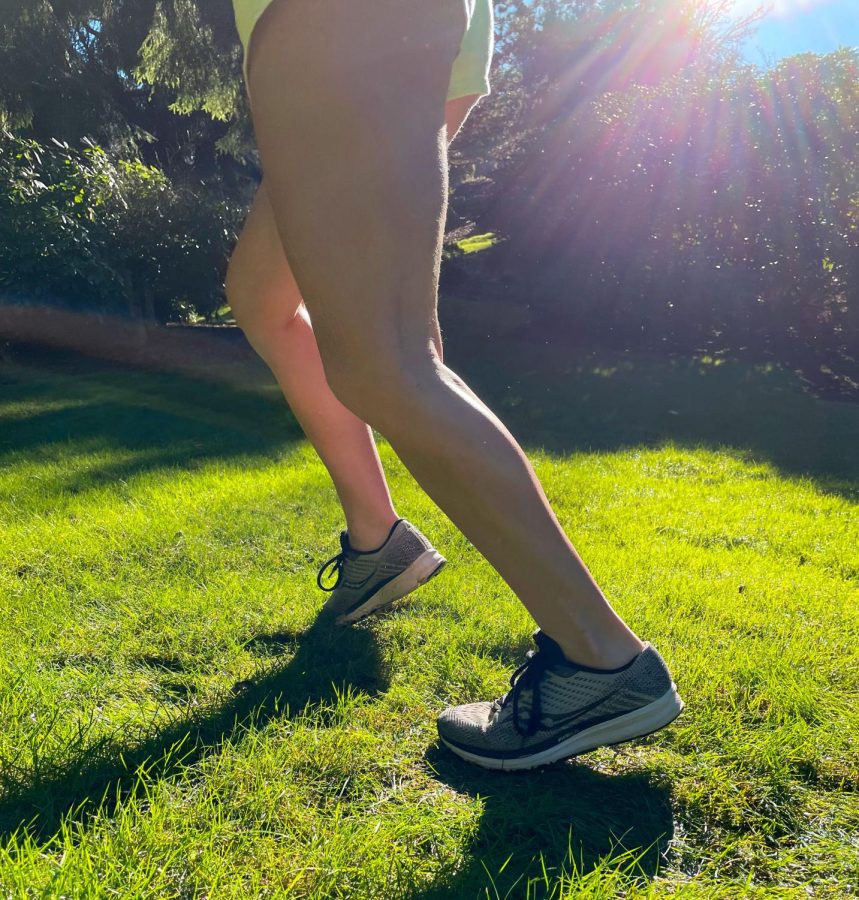The 5K: The Student Perspective
February 18, 2022
Any mention of the 5K that takes place at the end of any PE course at IHS will inevitably be met with mixed opinions. It is used as a final assessment for all PE classes at IHS, and the way it is graded will vary by teacher. Aspects of the event have garnered criticism among students, parents, and teachers alike. Some see it as an opportunity for goal setting and improvement over a semester, while others criticize the general inflexibility of many aspects of the event. However, the 5k is not unique to IHS alone. IHS P.E. teacher Meagan Gratias says, “The 5K is the district assessment for all PE classes. Every high school PE student in the Issaquah School District jogs a 5K at the end of the semester.”
Even though many students do not like the 5K, it is important to remember that it does possess some positive attributes, with intentions of teaching students important lessons and helping them build skills. IHS PE teacher Brandon Fortier says, “I hope my students learn that they are truly capable. Along the way they learn to push towards a goal and persevere, mentally and physically. If they truly embrace it and put in some work, they often learn that jogging is a great physical, mental and social outlet!” Many students also find the 5K to be a positive experience in goal setting, regardless of whether they are being graded on achieving it. Junior Ethan Blazer says, “I had to fill out a form ahead of time saying what I think I was going to get [on the 5K], and then I ran to try and get that. It was pretty simple.” For many, the 5K is a healthy challenge. Healthy competition exists, which can motivate students to try their best. Most students also know on the very first day of a PE course that a 5K will be the final assignment, so they are able to work towards achieving a certain goal as the semester goes on. Sophomore Tristain Langenard says, “I don’t think it’s unhealthy or unsafe, especially since you can more or less go at your own pace, and if you’re just being graded on improvement over time, it can’t be too bad.”
While many view the 5K as a healthy challenge, some find it to be an unattainable assignment. Especially for those with medical conditions or factors beyond their control that inhibit their ability to run, being graded on the same scale as those without inhibiting factors can be disproportionately challenging. Freshman Audrey Short says, “I think [the 5K] neglects to understand that a lot of students are not going to train a lot on their own time to run a 5K, especially students like me who have to pace themselves because of a medical condition. So, it does feel a bit like an overgeneralized final assignment that has put groups of people at a disadvantage.” Many other factors can also influence a student’s experience with a 5K, including location of residence and socioeconomic background. Junior Siena Kinsley says, “In some areas, it’s safer to run. Some people can step out their back door and run, but for many people that’s not the case. Some people are able to get proper running shoes, and some aren’t. If you’re working a job all the time and have school, you probably don’t have time to go out for a run to practice.” Many students affected by factors that inhibit their ability to practice or run at all will receive a lower, often below passing grade on the 5K. This can be viewed as inequitable, and some students find it to be too ‘one-size-fits-all’ when not the same thing will work for every student. Though many teachers choose to grade the 5K only partially with a flat scale or by goal setting, some will use exclusively a flat scale. With the amount of variance between different grading methods teachers use, the teacher you happen to get for a PE course can be the difference between passing the 5K and not.
Additionally, concerns about overexertion arise in any assignment like the 5K. Senior Ashley Guptill says, “I saw people throwing up and falling down on trails, so that was very much not a positive experience for a lot of people, which is not what physical activity should be.” Competitiveness can be a driving force for some people to push themselves beyond their limits, and our notoriously competitive school is no exception. Freshman Damien Martin says, “There are the groups that really want to race each other, they all go at their own pace and brag about their times at the end. That’s fine, but you don’t really need to be competitive with it. It’s really about what kind of student you are.” Most students agree that the 5K can be improved to be more equitable and student friendly. Sophomore Rachel Dennie says, “I’m in favor of doing a 5K, but the time limit and the expectations for what the kids do on the 5K is very extreme, and for some people the distance is a lot. I think it should be graded on effort instead of time, and I think there should be an alternative activity for those who don’t want to run. “
So, what is the future for the 5K? Due to the 5K’s status as a district-wide assessment, it is plausible that it will not be going anywhere anytime soon. However, whether changes will be made to the aspects of it that students take issue with the most is entirely in the hands of those who are motivated to advocate for themselves and a 5K that works for them.




